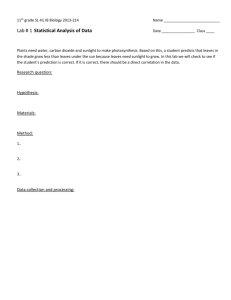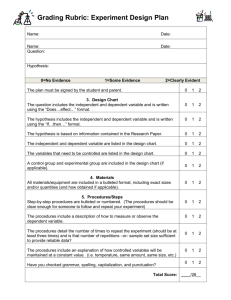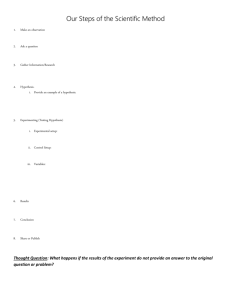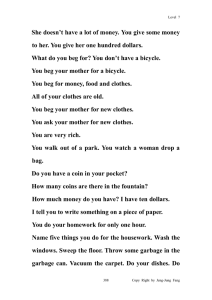The steps of the scientific method are: Question -
advertisement
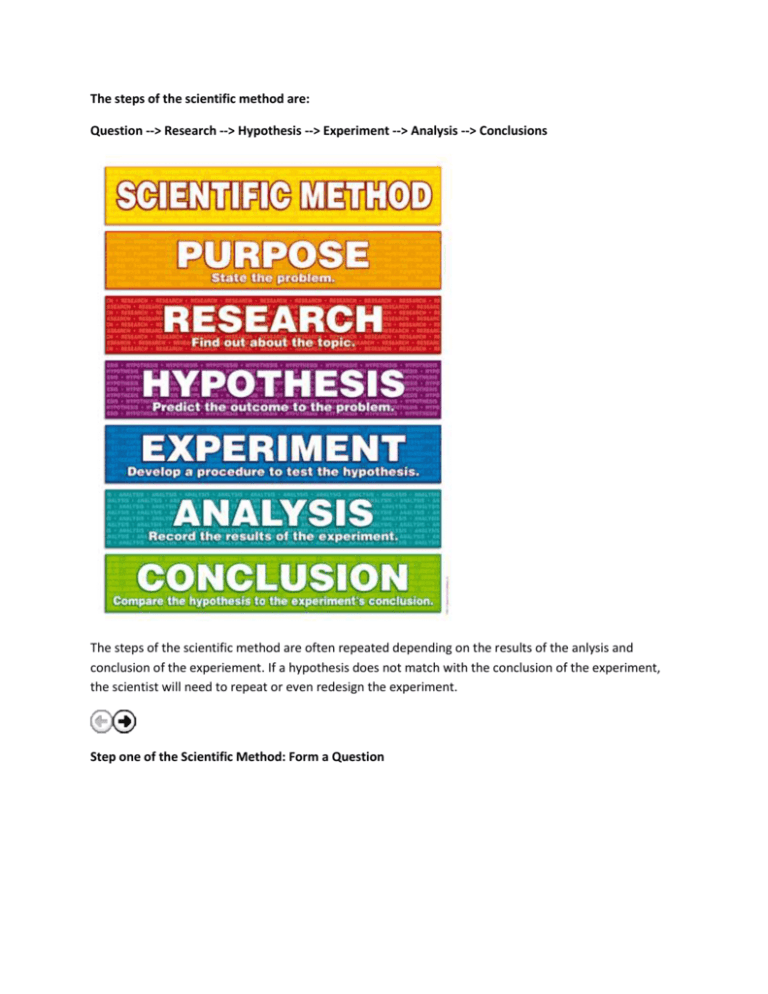
The steps of the scientific method are: Question --> Research --> Hypothesis --> Experiment --> Analysis --> Conclusions The steps of the scientific method are often repeated depending on the results of the anlysis and conclusion of the experiement. If a hypothesis does not match with the conclusion of the experiment, the scientist will need to repeat or even redesign the experiment. Step one of the Scientific Method: Form a Question A question about something is the basis of the scientific method. It is the purpose of the experiment which you will design. We ask questions about things we don't know the answer too all the time. Why is the sky blue? Where did I put my car keys? Why do birds fly south for the winter? Step two of the Scientific Method: Research the Question In order to find the answer to some of our questions, we need to do some research or investigate what we do and don't know about the question. Sometimes this research will mean talking to different people or reading books, websites, or magazines. Other times, research means we make observations about the question. Once we have gathered any and all information we can, we are able to move onto the next step of the scientific method. Step three of the Scientific Method: Make a hypothesis A hypothesis is an educated guess about what the scientist thinks will happen during the experiment. Hypothesis often have the following format: "If _________________ happens, then this __________________. Step four of the scientific method: Conclusions This is the portion of the scientific method where you match up your results with the hypothesis. Were you correct? Why? Were you incorrect? Why? The conclusion of the experiment allows you to evaluate whether or not your hypothesis needs to be adjusted. It also allows you to evaulate your experiment--what you did well and what you could do better the next time around. The scientific method is the way scientists answer questions about the world around them. In fact, it is the way ALL of us answer questions about the world around us. We oftentime use the scientific method and don't even realize it. For example, if you are deciding which brand of detergent to buy, your thinking process is very similar to the scientific method. Let's walk through the "experiment". Question: Which detergent is the best to buy? Research: What makes detergent the best? Is it more important to spend less money or make sure your clothes are as clean as possible? Or a combination of the two? Experiment: For this, the experiment is your experience with washing clothes and purchasing it at the store. When you buy the cheap detergent, your clothes don't come as clean as they do when you purchase another more expensive brand. Conclusion: When you spend a little more money, you save money on clothes. Your clothes get cleaner and stay nice looking longer which means you don't have to buy new ones. So, as you can see, by using the scientific method for a problem such as which laundry detergent to purchase, you have successfully worked through a problem. You can apply the steps of the scientific method to ANY question you might have.








